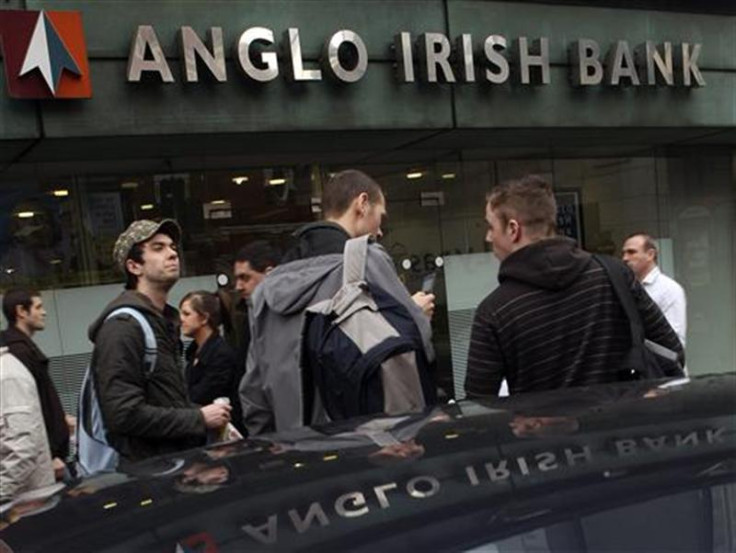Ireland Liquidates Failed Anglo Irish Bank ahead of ECB Deal
Proposal voted through 113 to 36

Ireland has passed legislation to liquidate the failed Anglo Irish Bank, as the debt-ridden country continues trying to secure a deal from the European Central Bank.
The liquidation of the Anglo Irish Bank, now known as Irish Bank Resolution Corp or IBRC, will help the Dublin government to delay the repayment of debts it amassed to rescue the bank.
The proposal to liquidate the firm was rushed through an emergency legislation by the Irish parliament and voted through 113 to 36. President Michael Higgins will sign the bill into law later in the day.
"This closes a sad and tragic chapter in our economic history," Irish Prime Minister Enda Kenny told legislators. He said the liquidation of the bank was "long overdue" and hoped that it would help the nation to better negotiate with the ECB.
Accountancy firm KPMG has been appointed as liquidator.
Patrick Honohan, central bank governor of the Republic of Ireland, was negotiating the fresh proposal with the ECB officials who are in Frankfurt for the monthly policy meet.
Under the new plan, Dublin can postpone the repayment of €3.1bn (£2.7bn; $4.2bn) a year on the so-called promissory notes or IOUs given to the IBRC until 2023.
Dublin has been negotiating with the ECB for the past 18 months to reschedule the debt repayment, but the ECB was thought to be reluctant to accept the earlier demands as it feared that it would set a precedent for other countries such as Spain, which are reeling under the pressure of huge bank debts.
If the ECB agrees to Dublin's plan, the IBRC's assets and loans will be transferred to the National Asset Management Agency (Nama), the state-run "bad bank" responsible for recovering the value of problematic loans made by other Irish banks.
The Anglo Irish Bank, one of the most prolific lenders to housing speculators and developers, was at the heart of Ireland's financial crisis in 2008 which forced the government to go for €67.5bn EU-IMF bailout in late 2010.
© Copyright IBTimes 2025. All rights reserved.





















